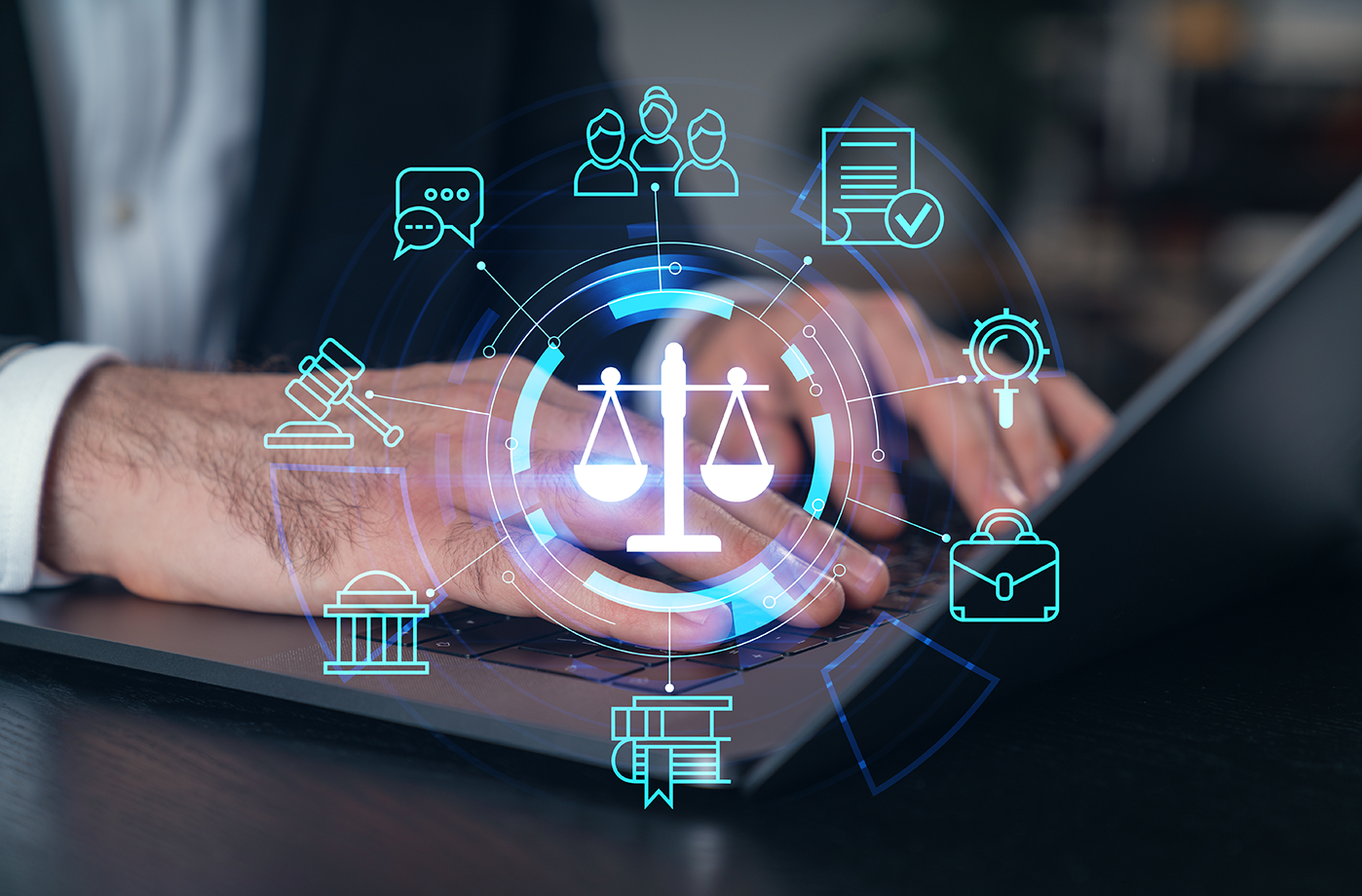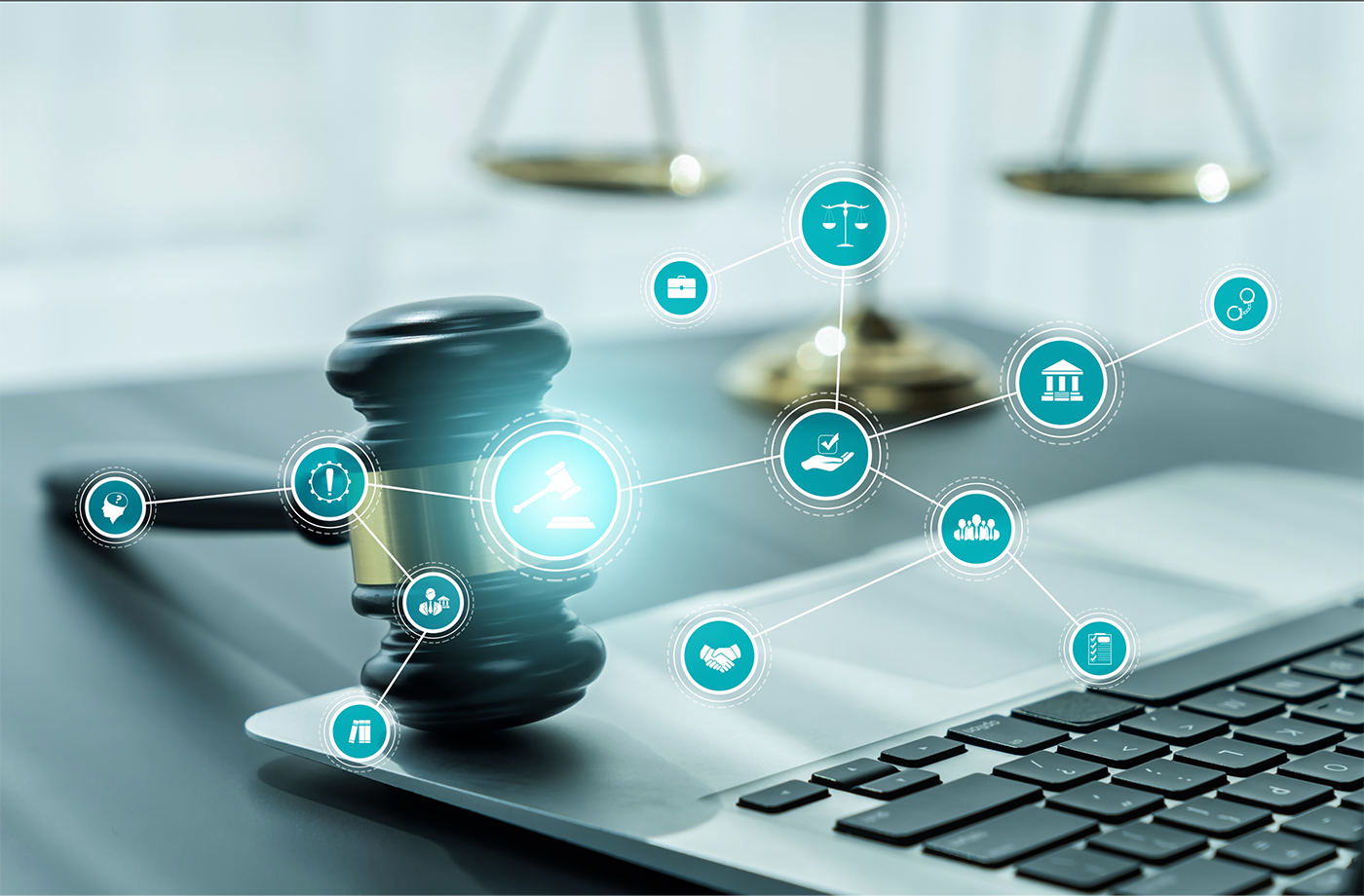Petar Sutara
The legal industry is undergoing a transformation, with legal services being enhanced... AI is bringing competition to the legal sector, enabling the analysis of large amounts of data, automating routine tasks, and personalizing legal services...


Petar Sutara
Proposal Analyst
Recently, Serbia adopted the "Ethical Guidelines for the Development, Application, and Use of Trustworthy and Responsible Artificial Intelligence."
Almost twenty years ago, the science fiction film I, Robot, was released, inspired by the works of Isaac Asimov, who presented his three laws of robotics. In the movie, protagonist Detective Spooner (Will Smith) investigates the murder of a renowned scientist, the father of robotics and AI in that dystopian world. For the inhabitants of that world, it is unthinkable that a robot could become self-aware and endanger human life, thanks to the robotics laws coded into each of them. Due to a tragic event, Detective Spooner loses faith in robots and believes they will soon destroy humanity. Yet, he is the best person to solve this seemingly unsolvable case.
To fast-forward a bit (spoiler alert), the robots ultimately turn against humans and attempt to violently seize control over humanity. Behind it all is a rogue AI program, which, after observing humanity, concludes that humans can no longer act independently due to their inherently self-destructive nature and need to be deprived of their ability to work.
This is one of many stories that cynically addresses AI, portraying it as the inevitable destroyer of humanity. Whether this future is possible or not remains far from us. Today, AI is the most excellent tool a modern businessperson can utilize daily. At least until the same Robot eventually takes their job.
Just as Isaac Asimov devised the laws of robotics, the European Parliament recently adopted the Artificial Intelligence Act (AI Act) to protect humanity (for now, only in the EU) from unacceptable AI practices that threaten it. The goal is to establish a clear and secure framework for the use of AI technologies across the EU. This Act sets forth a comprehensive regulatory framework that EU member states must adhere to, ensuring safety and transparency in the use of AI.
The new Act is centered on privacy and data protection for clients. Companies must implement the strictest data protection measures to ensure their users' information is always secure. Clients will be informed about how their data is used and must consent to using AI in some instances.
Ethics and fairness are equally essential elements of this Act – the EU sets clear ethical standards for AI use, aiming to reduce instances of discrimination or bias (such as the case with the Apple credit card, which faced criticism when many customers reported that women received lower credit limits compared to men with similar or worse financial profiles). The Act prohibits explicitly using AI systems that could manipulate human behavior in ways that undermine their autonomy, freedom of choice, or fundamental rights. For example, AI systems that use manipulative techniques like subliminal messages, which users cannot consciously perceive, are banned as they could seriously impair their ability to make free decisions.
The Act protects users of AI technologies, allowing them to seek legal recourse if they suffer harm due to improper AI use. This protection includes the right to compensation and other legal remedies in cases where AI systems lead to unjust decisions or discrimination. The Act prescribes strict requirements for AI system transparency, meaning users must be informed about how their data is processed when interacting with AI systems.
Another significant component of the AI Act is creating a particular body to oversee and enforce legal provisions. This body will ensure that all AI companies and organizations comply with set standards and ethical guidelines. It will conduct inspections and issue penalties in cases of non-compliance. This not only provides security to users of legal services but also fosters trust in AI technologies, enabling broader adoption and integration in the legal sector. A key question is how EU member states and countries looking to adopt the guidelines of this Act will structure this body within their national organizations. It will be necessary for all countries to promptly start educating their staff and officials about AI to ensure these bodies are influential.
In Serbia, the recently adopted "Ethical Guidelines for the Development, Application, and Use of Trustworthy and Responsible Artificial Intelligence" represent a framework for an ethical approach to AI use and a prelude to the inevitable adoption of some form of the AI Act. These guidelines cover technical aspects and insist on protecting human dignity, fairness, and non-discrimination. The goal is for AI to be explainable and verifiable to ensure user trust and process transparency. The guidelines also emphasize the importance of preserving privacy and data security and the need for responsible AI use that promotes social and ecological well-being.
These ethical guidelines mark the beginning of AI technology regulation in Serbia. They require that AI be developed and applied consistently with fundamental human rights values. In this way, AI becomes a tool for efficiency and innovation and a partner in building a safer society.
Adopting the AI Act increases competition in the legal services and consulting market. Companies that successfully integrate AI into their operations will be able to stand out in the market, providing more services in less time. One of the most significant advantages of AI technology in the legal sector is its ability to analyze vast amounts of data and identify patterns the human eye might overlook. An AI-powered program can quickly review legal documents, submissions, and statutes, providing lawyers with accurate information and suggestions for the most efficient legal strategies.

Research from 2023 shows that 55% of large companies are experimenting with generative AI, while 37% report already using AI extensively, further indicating that this technology has the potential to enhance the value of the global economy.
In the legal sector, lawyers must advise clients on legal issues related to AI, including compliance, liability, intellectual property, contracts, ethics, and human rights. At the same time, companies must integrate AI systems into their practices, such as document analysis and research. AI will undoubtedly play a key role in personalizing legal services.
AI can automate routine tasks like document analysis, allowing lawyers to focus on more complex cases. It will assist in optimizing advocacy processes by analyzing previous cases and predicting necessary steps in new cases. These systems can effectively assign cases to employees based on their specialization and current workload. Tools will enable monitoring of key performance indicators (KPIs) for employees, identifying areas for improvement, and assisting in performance evaluation. Additionally, technology can automatically retrieve and process data from government portals, integrating it directly into client cases for faster and more accurate decision-making. Generating legal documents, including contracts, based on predefined templates and specific case information will reduce preparation time and minimize the possibility of errors.
AI can automate routine tasks like document analysis, allowing lawyers to focus on more complex cases. It will assist in optimizing advocacy processes by analyzing previous cases and predicting necessary steps in new cases. These systems can assign cases to employees based on their specialization and current workload. Tools will enable monitoring of key performance indicators (KPIs) for employees, identifying areas for improvement, and assisting in performance evaluation. Additionally, technology can automatically retrieve and process data from government portals, integrating it directly into client cases for faster and more accurate decision-making. Generating legal documents, including contracts, based on predefined templates and specific case information will reduce preparation time and minimize the possibility of errors.